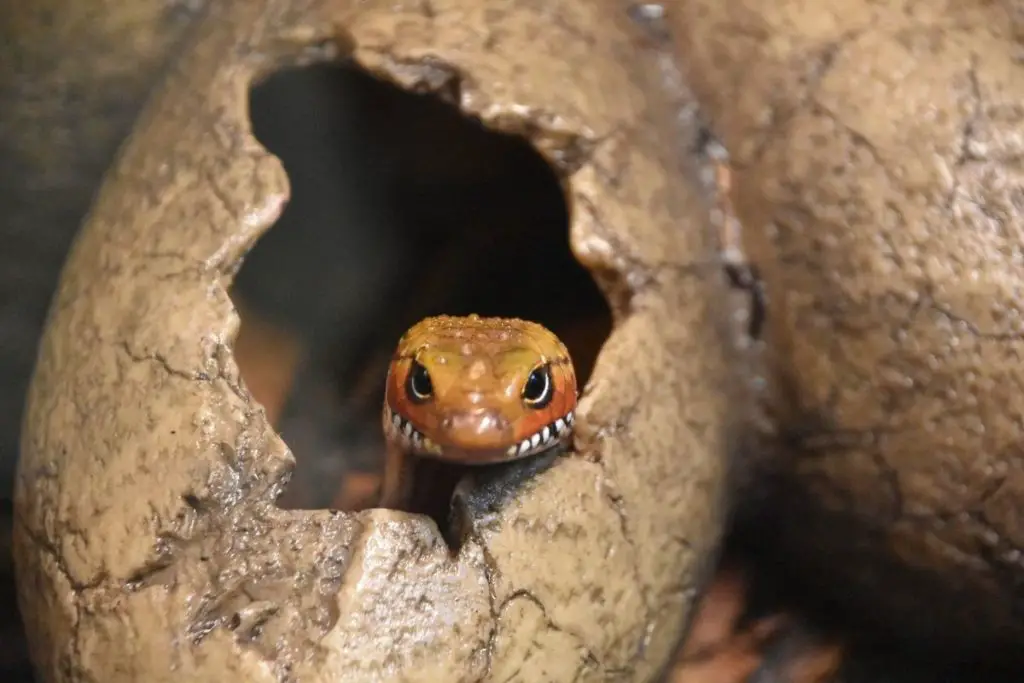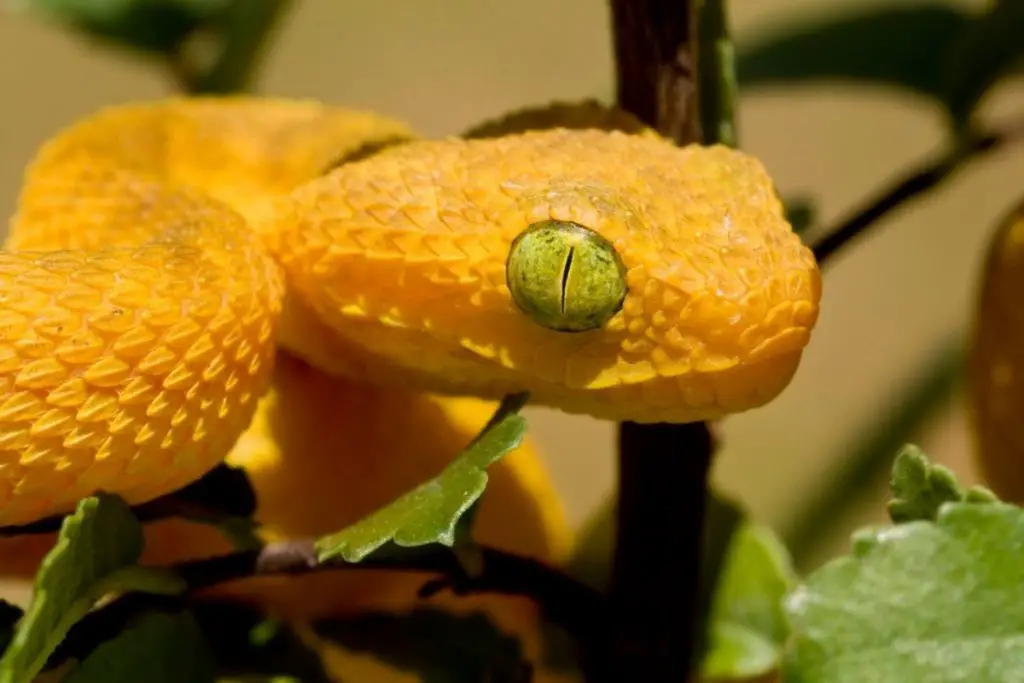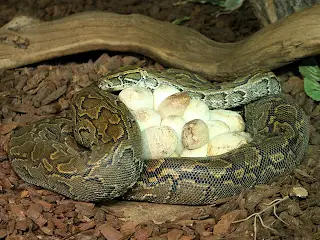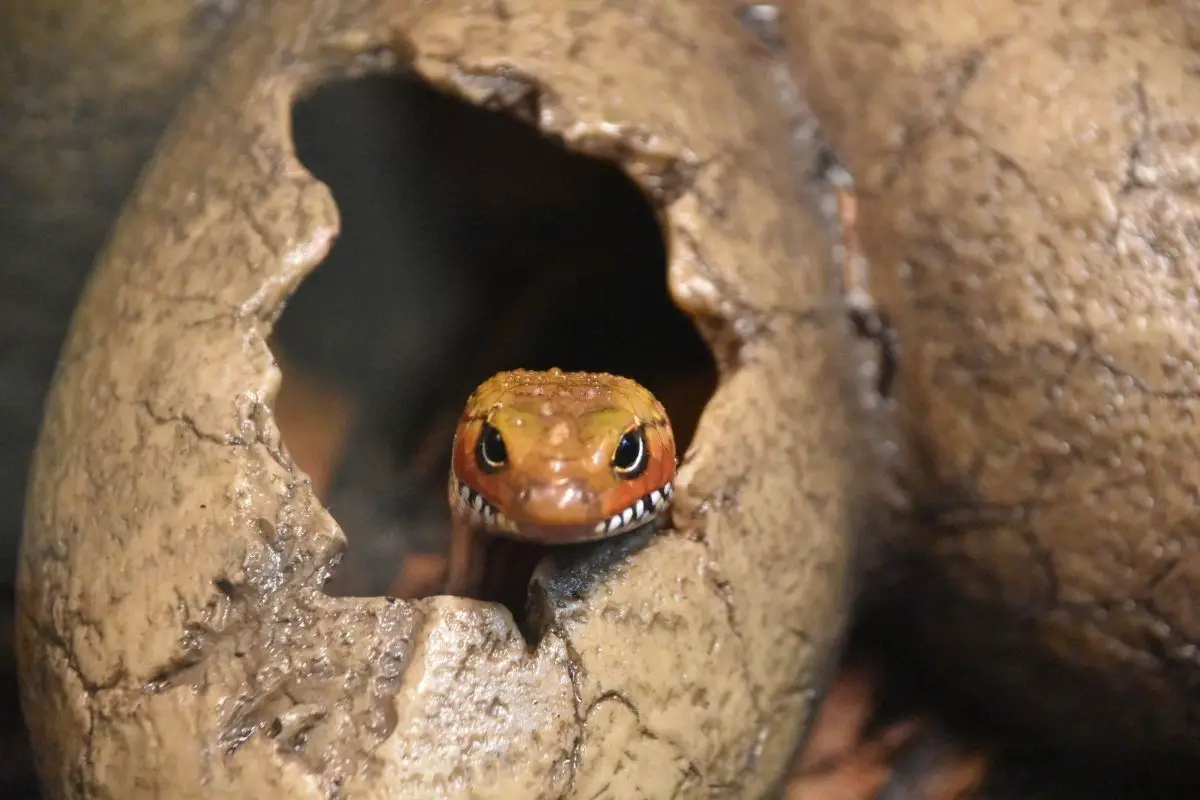The question of do snakes recognize their babies or care for them has been a subject of much debate among scientists and snake enthusiasts.
In the past, most experts agreed that snakes do not show any parental interest in their young at all. Others believe that they do but only until the eggs hatch.
However, recent studies have shown that we truly know very little about snakes and that snakes are not as harsh or cruel as we make them to be.
So, do snakes recognize their babies? Snakes do recognize their babies and care for their eggs and even protect and care for them after they hatch, and although this depends on the snake species, recent studies found that most snakes will curl around their younglings to protect them from predators until they are strong enough to catch their own food.
This is kind of amazing because it shatters a lot of what we believed to be true about all snakes. It turns out, even those cold-blooded predators can be good parents, but to find out exactly what snakes do and do not as parents, keep reading.
Contents
Do Snakes recognize their babies?

Almost every mammal and bird cares for its young in some way or form, but it has been widely accepted that the majority of reptiles, and particularly snakes, do not really care for their younglings.
Snakes are commonly thought of as being particularly antisocial. Snakes do not feel affection for their owners or their mates, for example, and as they are solitary creatures, affection doesn’t provide much help for them anyway.
But, it turns out, that snakes do not only recognize their babies, they will also care for them – depending on the species, but how long do they spend with them and how exactly do they care for them will depend on the species.
Let’s look at some of the most recent discoveries to learn how do different species of snakes care for their babies.
How vipers care for their babies

Vipers are one of the most well-known snake species for caring for their young, which is kind of amusing given the terrible reputation of these snakes.
Although it was observed in the 19th century that vipers care for their parents, this has not actually been acknowledged or accepted in the community until a century and a half later. It was believed by almost everyone that all snakes abandon their nests shortly after they lay their eggs.
However, it is now known that many species of viper do indeed care for their young ones in a number of different ways.
Only in the late 20th century were the reports of parental care in wild pitvipers gaining popularity, and in 2002, a landmark study proved that mother vipers do actually care for their younglings and don’t leave them once they hatch.
Today, we believe that parental care is common (but not universal) among about 230 species of pitvipers. This is especially remarkable given the fact that many of them produce live youngsters, which they protect until the young’s first shed. They leave only when the first shed cycle is complete.
Since snakes swallow their prey whole, the mothers can’t provide their young with the nutrition they need. So, the young snakes need to find their own food right after they hatch. The only exception here is those pitvipers.
How Pythons care for their babies

Egg-brooding behavior in pythons, first documented in 1835, is the next most famous example of parental care in snakes.
All pythons lay eggs, and they wrap them in coils while incubating, giving up food. This behavior was initially dismissed, but observations of pythons in zoos revealed that they do indeed brood their eggs by the 1930s. Some species that dwell in chilly climates do this to keep the eggs warm.
According to studies, Indian Pythons can raise the temperature of their eggs by 7-10°F in response to a drop in body temperature. Although mother pythons may brood for up to two months at a time, researchers have proven that they rarely shiver and lose only about 6% of their body mass at average temperatures, which means that that they do not expend much energy in the process.
How long do baby snakes stay with their mother?
Once the baby snakes are born, they will stay with their mother until they are about to shed for the first time. After that, they will be on their own and will have to fend for themselves. Snakes do not have a lot of parental care after their young leave them.
They only provide food for them when they are in danger and cannot do it themselves. Even though snakes do not have a lot of parental care, they are still able to survive and reproduce.
How do snakes treat their babies?
There is some evidence that snakes do in fact take care of their young, but it is still up for debate whether or not they can actually recognize them. One study showed that when baby rat snakes were removed from their mother’s nest, the mother snake would coil around them and try to move them back to the nest. However, when baby snakes were removed from a different nest, the mother did not react at all.
It is still unknown whether or not snakes depend on parental care in order to survive. Some researchers believe that snakes do not need parental care, as they do not need to be protected from predators and do not require as much energy as mammals.
Do Snakes eat their babies?
Snakes do not usually eat their babies, but there have been a few documented cases of snake cannibalism and some rattlesnakes have been observed to eat their babies, but since most snake species abandon their eggs before they hatch or right after, most snakes never meet their babies or interact with them and so they never get the chance to eat them.
Related Questions
What do baby snakes eat?
Baby snakes, like their parents, typically eat the same diets. Size is a key consideration when it comes to baby snakes. There are no herbivorous snakes because all snakes are meat-eaters. Small animals such as insects, frogs, mice, eggs, and other little creatures that can be consumed in the mouth are all suitable foods for baby snakes.
How do snakes protect their eggs?
While many mother snakes do not stay with their eggs after oviposition, some do offer protection. Python moms, for example, wrap themselves around their eggs to guard and warm them via shivering. Bullsnakes, rat snakes, and king snakes are just a few of the egg-laying species.
Helpful Resources
Reproductive biology and maternal care of neonates in southern African python (Python natalensis)
If you like this article, please share it!

